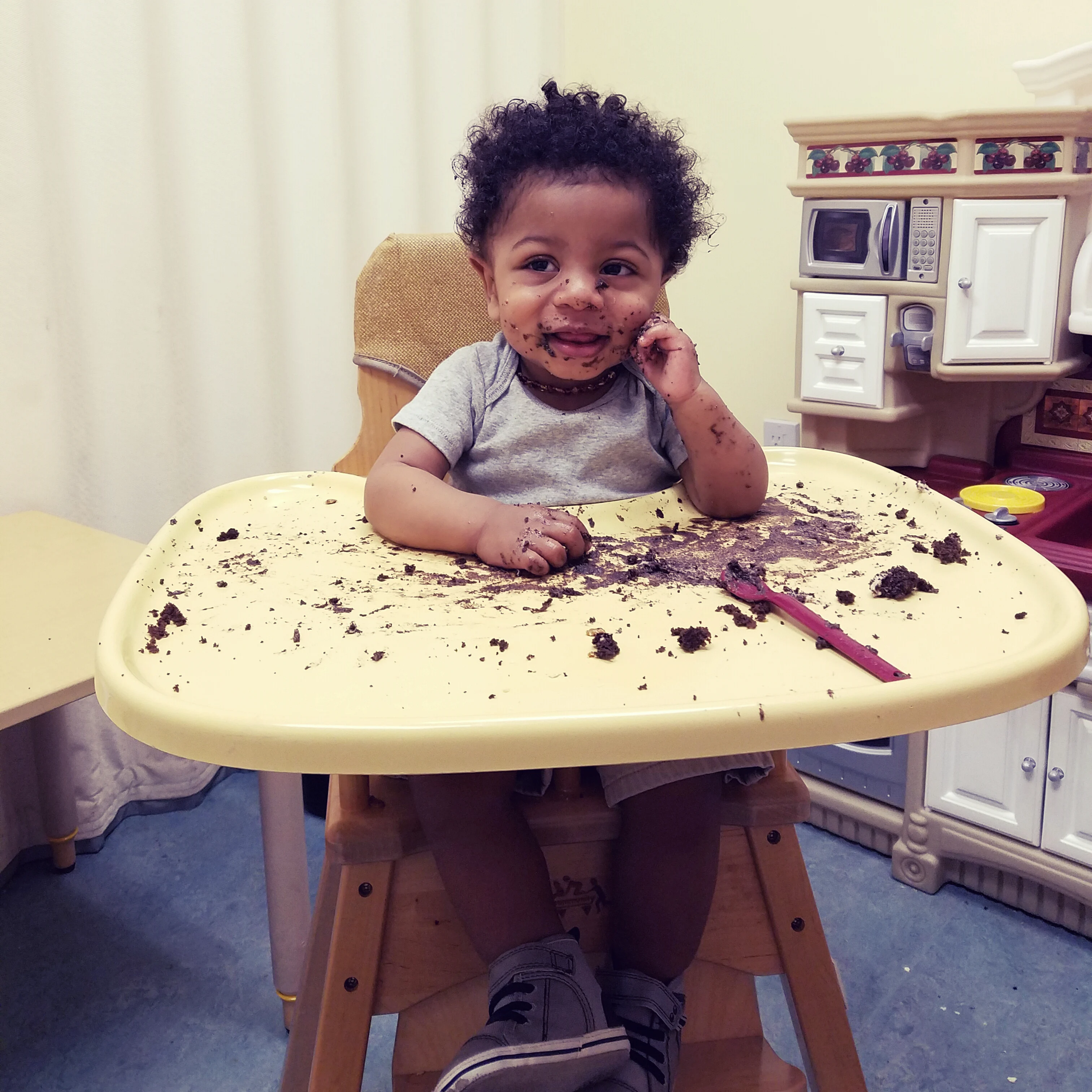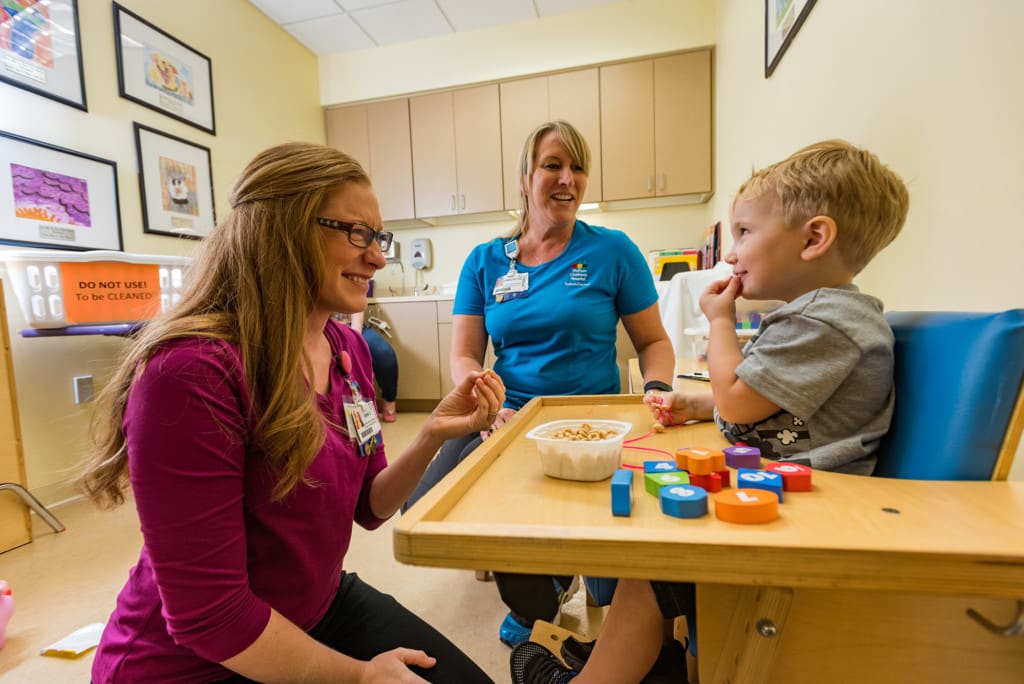Wolfson Rehabilitation
Call us for more information and to schedule your child's first appointment at any location

At Wolfson Children’s Hospital, we understand the special needs of families and children with feeding and swallowing problems. Parents and caregivers receive ongoing education on feeding techniques specific to their child’s condition, while therapists promote positive feeding experiences that are safe, nutritious and nurturing.
Feeding and swallowing problems in children can be complex, with serious consequences to your child’s health. Left untreated, feeding difficulties can lead to:
Call us for more information and to schedule your child's first appointment at any location
All of our evaluation and treatment approaches are based on the latest pediatric feeding research and we coordinate care with physicians, dietitians, behavioral specialists, occupational therapists and speech-language pathologists.
For children with complex medical conditions discharged from the hospital, our outpatient therapists have the knowledge and expertise to guide the transition off of feeding tubes.
Call us for more information and to schedule your child's first appointment at any location
The Wolfson Children's Feeding Program could help your child if he or she:
Your child might also show sensory problems that result in feeding difficulties, such as:
Sometimes, movement limitations of the tongue, lips and jaw can lead to problems with feeding or swallowing. If your child has oral movement problems, they may have:
We are experienced in all childhood conditions that may affect a child’s ability to eat, drink or swallow successfully. These include:

Drew Bradbury Center
841 Prudential Drive
Suite 140
Jacksonville, FL 32207
904.346.0394
Wolfson Children's Specialty Center at Baptist Clay
1747 Baptist Clay Drive
Suite 100
Fleming Island, FL 32003
904.516.1800
Baptist South Medical Office Building 3
14534 Old St. Augustine Road
Suite 3330
Jacksonville, FL 32258
904.292.1808
Baptist Beaches Medical Office Building B
1375 Roberts Drive
Suite 202B
Jacksonville Beach, FL 32250
904.627.1480
Wolfson Children's Specialty Center
3650 NW DeVane Street
Lake City, FL 32055
386.758.1811